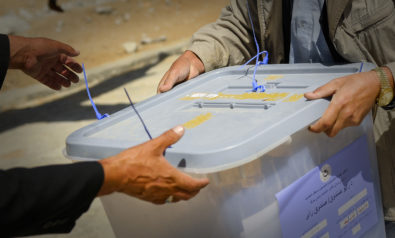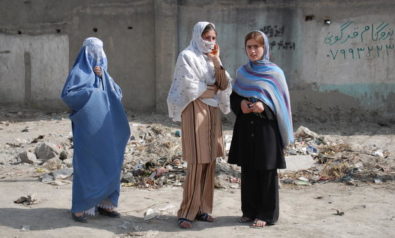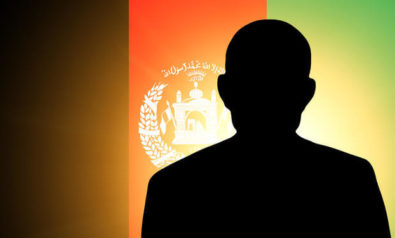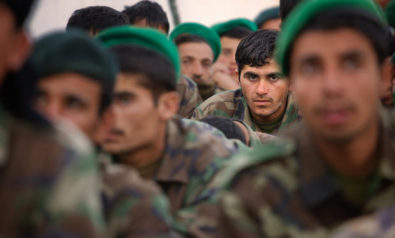Following the presidential election, Afghans need to take charge of their own future.
On April 5, Afghans will cast their votes in what is considered the most significant election in their country's recent history. For the first time since the fall of the Taliban, someone other than Hamid Karzai will occupy the office of the president in Kabul.
While I do not wish to undermine the significance of the presidential election, I do believe the vote is only a means to an end — a stable, peaceful, inclusive and prosperous Afghanistan.
The day after the Afghan election is when we begin to work on what lies ahead and how the incoming administration can be helped and strengthened to address critical pending issues, such as the signing of the Bilateral Security Agreement (BSA), the deal negotiated between Kabul and Washington late last year that would regulate the keeping of international forces in Afghanistan after 2014. President Karzai has thus far refused to sign the BSA.
The election is not our last chance; rather, it is our next-to-last chance. Our last chance lies in our ability to define Afghanistan's national interest, amid disparate tribal allegiances and competing priorities.
To pin all hopes on this election alone, without adequately addressing the larger issues of governance, inclusion and security — and without clearly defining our strategic national interests in relation to our neighbors, the region and the global community — is to exercise shortsightedness. The incoming president and his cabinet will have to focus on the more urgent need of ensuring good governance, strengthening accountability, and creating an inclusive political climate.
One major concern on every Afghan's mind these days is: "Will the state hold together after the election?" And, just as pressing: "Will Afghanistan get its act together and move ahead with the BSA before it is too late?"
The pending BSA is an indicator of our inability to understand, collectively define, and defend our national interests when it comes to building regional and international alliances.
We cannot afford to continue to ignore our lack of consensus on expanding and strengthening Afghanistan's international presence and outreach capacity. We cannot afford to ignore our geography, history and the importance of maintaining cordial relations with our immediate, as well as distant, neighbors.
In the wake of the much-heralded election, we Afghans should take advantage of the unique opportunity to change the course of our history. It is time that we put the future of Afghanistan ahead of our individual ethnic and tribal allegiances.
Only when we transcend our personal proclivities will Afghanistan stop being described as "an occupied nation," as Iranian President Hassan Rouhani said during this year's Nowrooz celebrations in Kabul.
For such statements, we can only blame our internal lack of clarity and weak political will. But starting April 6, these things need to change.
*[This article was originally published by Asia Society.]
The views expressed in this article are the author's own and do not necessarily reflect Fair Observer’s editorial policy.
Image: Copyright © Shutterstock. All Rights Reserved
Support Fair Observer
We rely on your support for our independence, diversity and quality.
For more than 10 years, Fair Observer has been free, fair and independent. No billionaire owns us, no advertisers control us. We are a reader-supported nonprofit. Unlike many other publications, we keep our content free for readers regardless of where they live or whether they can afford to pay. We have no paywalls and no ads.
In the post-truth era of fake news, echo chambers and filter bubbles, we publish a plurality of perspectives from around the world. Anyone can publish with us, but everyone goes through a rigorous editorial process. So, you get fact-checked, well-reasoned content instead of noise.
We publish 2,500+ voices from 90+ countries. We also conduct education and training programs
on subjects ranging from digital media and journalism to writing and critical thinking. This
doesn’t come cheap. Servers, editors, trainers and web developers cost
money.
Please consider supporting us on a regular basis as a recurring donor or a
sustaining member.
Will you support FO’s journalism?
We rely on your support for our independence, diversity and quality.











Comment